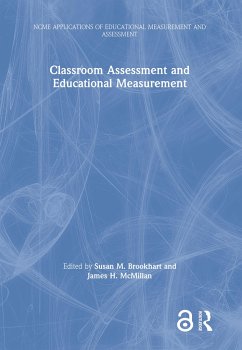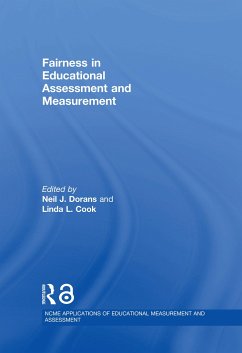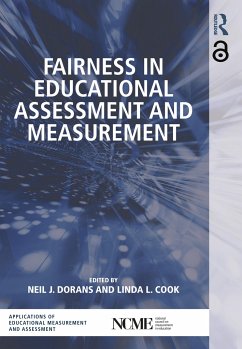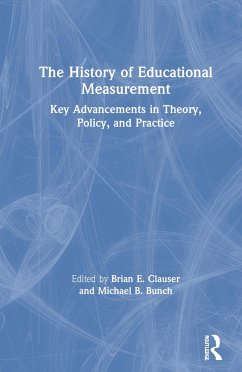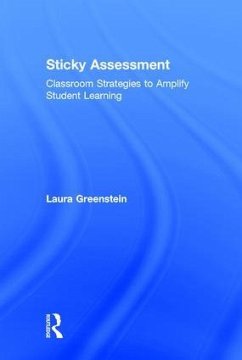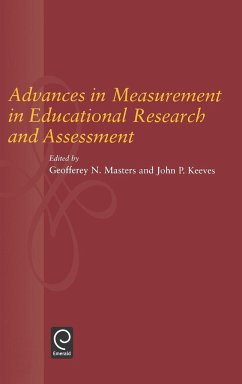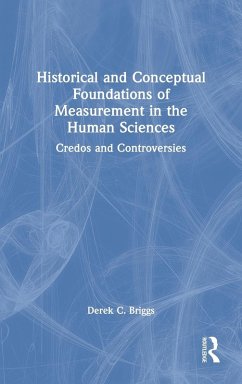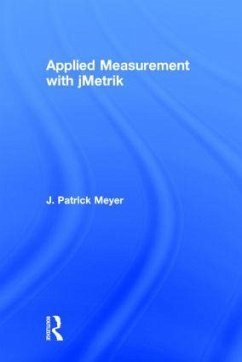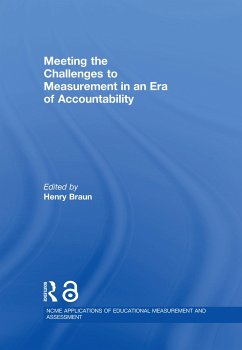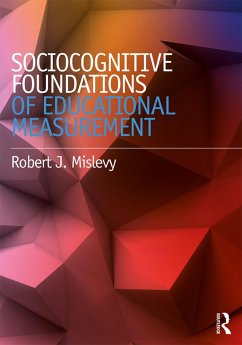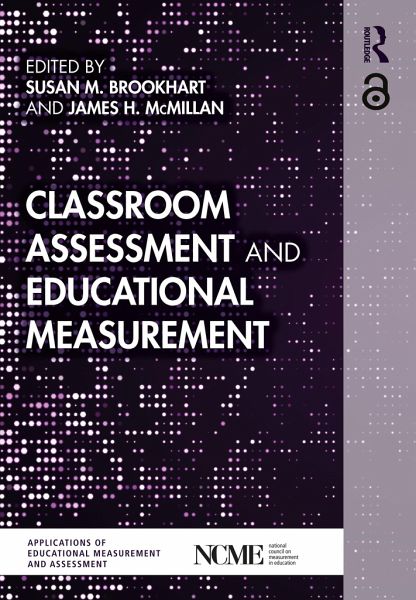
Classroom Assessment and Educational Measurement
Versandkostenfrei!
Versandfertig in 1-2 Wochen
77,99 €
inkl. MwSt.
Weitere Ausgaben:

PAYBACK Punkte
39 °P sammeln!
Classroom Assessment and Educational Measurement explores the ways in which the theory and practice of both educational measurement and the assessment of student learning in classroom settings mutually inform one another. Chapters by assessment and measurement experts consider the nature of classroom assessment information, from student achievement to affective and socio-emotional attributes; how teachers interpret and work with assessment results; and emerging issues in assessment such as digital technologies and diversity/inclusion. This book uniquely considers the limitations of applying la...
Classroom Assessment and Educational Measurement explores the ways in which the theory and practice of both educational measurement and the assessment of student learning in classroom settings mutually inform one another. Chapters by assessment and measurement experts consider the nature of classroom assessment information, from student achievement to affective and socio-emotional attributes; how teachers interpret and work with assessment results; and emerging issues in assessment such as digital technologies and diversity/inclusion. This book uniquely considers the limitations of applying large-scale educational measurement theory to classroom assessment and the adaptations necessary to make this transfer useful. Researchers, graduate students, industry professionals, and policymakers will come away with an essential understanding of how the classroom assessment context is essential to broadening contemporary educational measurement perspectives. The Open Access version of this book, available at http://www.taylorfrancis.com, has been made available under a Creative Commons Attribution-Non Commercial-No Derivatives 4.0 license.





